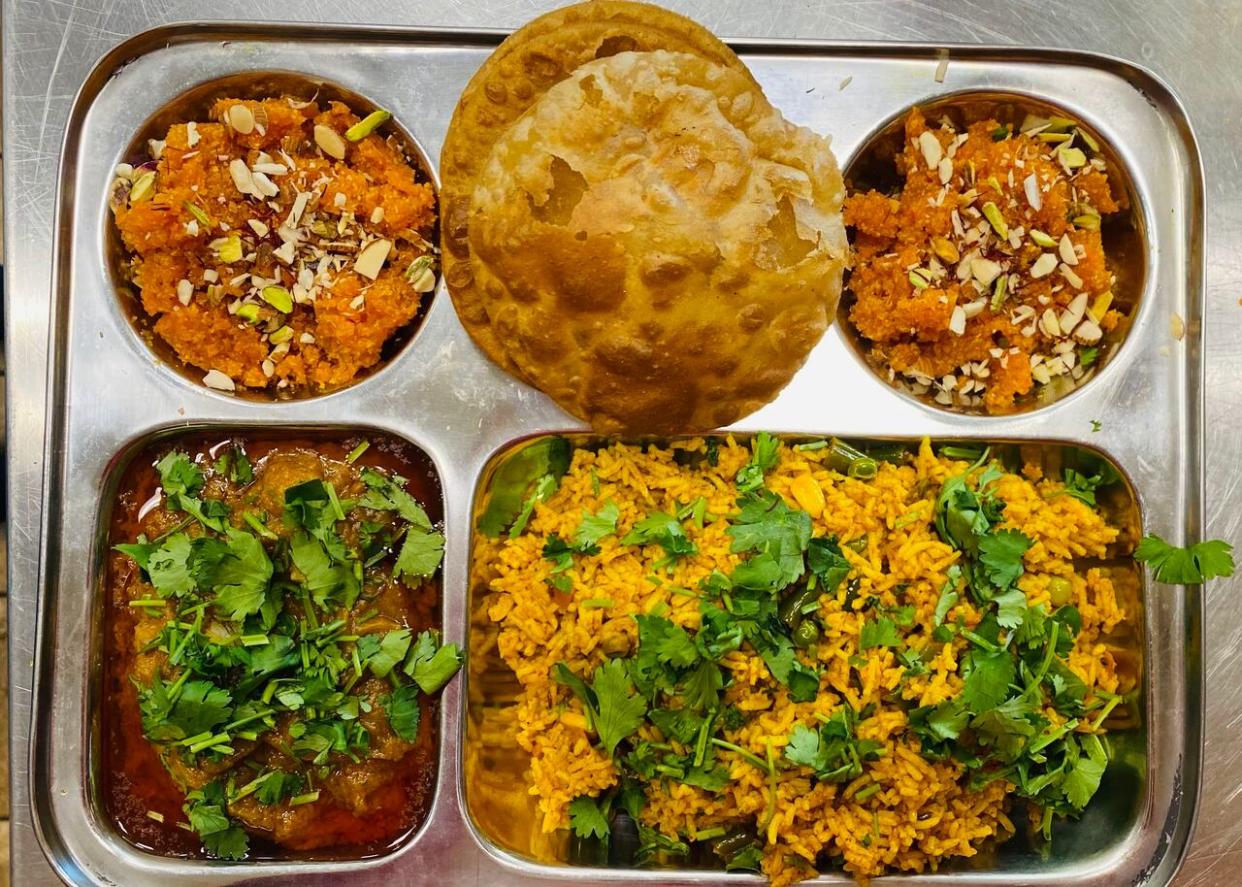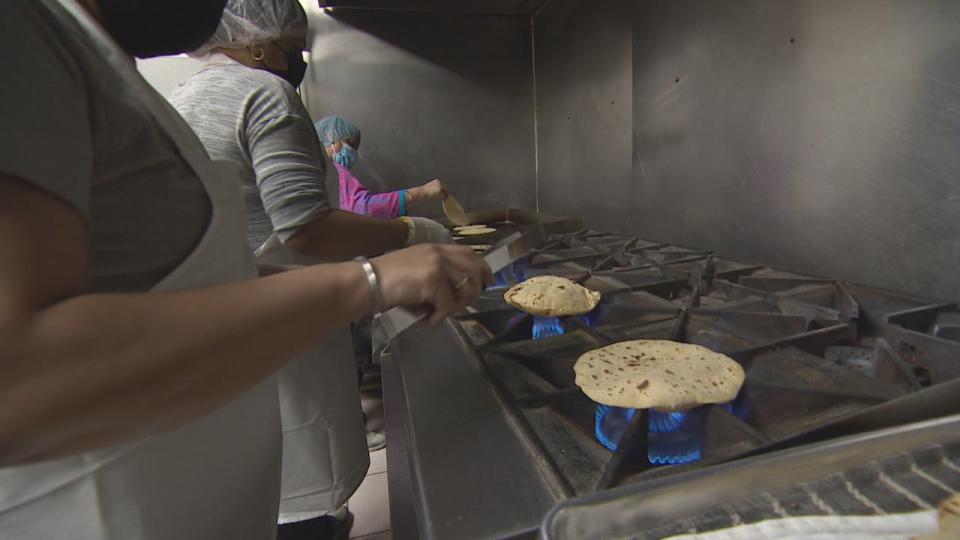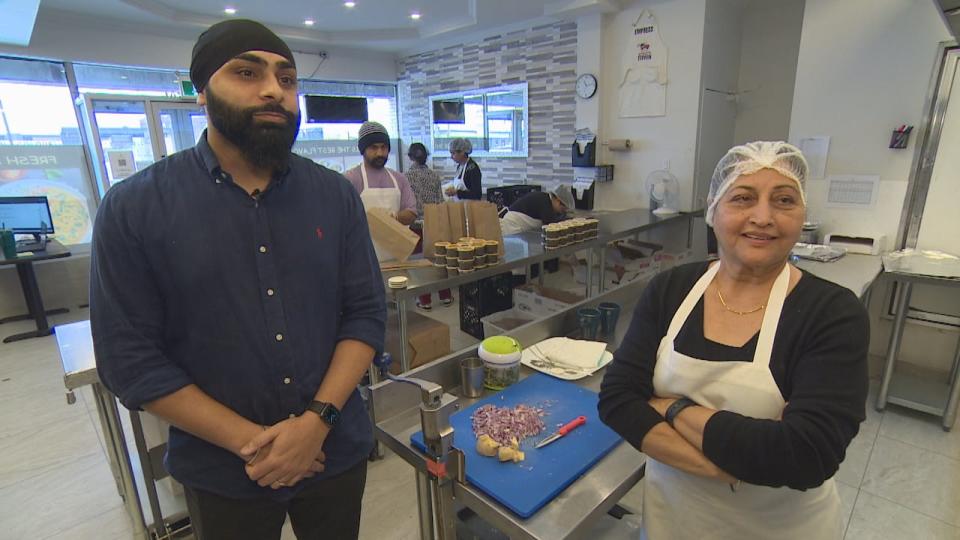Searching for home in a lunchbox: Why demand for tiffins is growing in Toronto and beyond

When Soumyadeep Das moved from India to Canada just over a year ago, he quickly learned that he's a terrible cook.
He was tired of the runny eggs and rice he was putting together and was searching for authentic Bengali cooking that could mirror his mother's.
"My mom is a fantastic cook," he said, adding he missed the fish curry he used to eat, with less salty fish common in Kolkata, where he's from.
That led Das to find a tiffin service on Facebook. He orders from a Bengali woman in North Toronto, who delivers him lunches.
In India, a tiffin typically means a prepped lunch with a homemade feel. It often comes in stacked vertical stainless steel containers and is either prepared at home or delivered to work. A tiffin service is usually offered by subscription, with a fixed monthly and weekly fee, and has evolved to include daily breakfast, lunch or dinner options.
According to some vendors, tiffin services are on the rise across the GTA and Canada, especially with workers returning back to the office, rising grocery bills, and people looking for food that reflects regional diversity.
And as the pandemic hastened public reliance on delivery services — new platforms are emerging for delivery.
Subscribers across the city
It was their own personal hunt for a tiffin service in Brampton that prompted siblings Krish and Shruti Shah, along with their friend Omey Mistry, to start a tiffin delivery platform.
As the Shah siblings tell CBC Toronto— they found vendors advertising on Kijji and Facebook. But there was no streamlined delivery platform and no way to see reviews.
"It's very unorganized. Sometimes they would say they will deliver it to you at 12 p.m. but it would come at 2:00 p.m. Sometimes they didn't even deliver," said Shruti.

Omey Mistry, left, Shruti Shah, centre, and Krish Shah, right, started Tiffin Stash, a delivery platform for tiffin services, after they struggled to find tiffins that met their needs. (Olivia Bowden/CBC)
Krish says that's why he started Tiffin Stash, an ordering platform for tiffin services across the GTA, and brought on Shruti and Mistry as co-founders and partners in the business.
By 2021, business started picking up fast, they say. They have 17 vendors available on the site that produce about 400 orders that go out a day. Three distribution hubs in Brampton, Mississauga and Etobicoke cover all of the GTA. Tiffin Stash also employs the drivers that take the food to customers' buildings.
Shruti explains why a tiffin is so different from ordering from a typical Indian restaurant. It's considered homemade food that reflects the vast culinary diversity of India's food scene and represents multiple cultures, religions and dialects, she says.
What's packed in a tiffin is deeply personal, as it reflects heritage, says Shruti.
"Finding the right tiffin was such a challenge because…the right tiffin suits your taste, is perfect in your quantity, your quality, everything," she said.
The vendors only have to worry about ensuring the food tastes good— Tiffin Stash handles delivery, customer services and any other logistics, said Krish.
The company isn't alone in seeing demand for tiffins.
Over in North York, KoKo's Tiffin is preparing for their Wednesday lunch service. Steaming paneer is scooped into containers and women roll out roti dough into soft circles that will soon be put over heat.

Cooks flip rotis at KoKo's Tiffin in North York. The restaurant offers only tiffin subscriptions with daily deliveries across the city. (Mark Bochsler/CBC)
Harman Kahlon, who came to Canada from India at 13 years old, runs the tiffin restaurant with his mother Jaspreet Toor. Toor started cooking tiffins out of her home and demand grew so much that she opened the restaurant six years ago with Kahlon.
They serve only tiffins that are delivered daily to Scarborough, North York, Etobicoke, Mississauga and Brampton. Kahlon says they have about 400-500 subscribers who have meals delivered daily.
Kahlon says he believes tiffin services are a more affordable option compared to restaurants or take-out and could be a useful option for those working multiple jobs and don't have the time to cook.

Founders of KoKo's Tiffin Jaspreet Toor and Harman Kahlon are pictured in the restaurant. Kahlon says he hopes the tiffin services are seen as more affordable than restaurants or typical take-out meals. (Mark Bochsler/CBC)
Pandemic created more food delivery infrastructure: professor
Krishnendu Ray, a professor of food studies at New York University, says the pandemic hastened the expansion of food delivery systems.
"What the pandemic did in some ways is basically lay down the infrastructure for that system with food delivery," he said.
The increase in tiffin services is an indication of a new channel not restaurant focused or an industrialized, mass commercial kitchen, he explained, but often fuelled by women in domestic spaces who cook out of their homes.
"It's hard work," he said. "It's often in fact a labour of love," he said.
As for the Tiffin Stash founders, they're hoping to launch an app and expand into other provinces. They're also planning to increase the diversity of their offerings.
"We are thinking to expand our options to Nepalese food, Burmese food, Bangladeshi food and of course Pakistani food as well," he said. "We want to explore others because immigrants are coming from all over the world."

 Yahoo News
Yahoo News 
